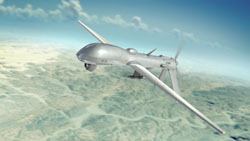From auto-pilot to pilot-less flights
The ‘Innovative future air transport system’ (IFATS) project set out to develop a network-oriented communication and control architecture for the various ground and air components enabling aircraft to fly pre-programmed flight plans via sophisticated onboard sensing and computing systems. The air transportation system (ATS) was based on a 4-dimensional (4D) contract, where the four dimensions were the x-, y- and z-components defining three-dimensional space and the t-component defining time. The ground segment was in charge of 4D contract generation, providing a pre-programmed conflict-free flight path based on 4D airspace and allowing for minor discrepancies between, for example, predicted and actual weather conditions. The air segment was responsible for adhering precisely to the 4D contract, for monitoring the trajectory and for initiating new 4D contract requests in the case of more major deviations in conditions or at the least broadcasting the relevant information in the vicinity of its flight zone. The researchers addressed two of the main ATS concerns, weather conditions and communication. They developed a simulation tool to develop flight strategies based on actual and predicted weather patterns over areas of Europe. To address the scarcity of bandwidth for transmitting ATS management (ATSM) information, IFATS incorporated a quality of service (QoS) policy enabling the sharing of bandwidth according to assignment of message priority as well as encryption to avoid interference and corruption of data. The IFATS concept was based on the idea that all airspace was covered by the system and all aircraft were cooperative, enabling conflict-free contracts. However, to aid in transition, non-cooperative aircraft should fly only in specific areas of the airspace known by the system. The IFATS project dealt strictly with technical aspects of such automation and successfully demonstrated its technical feasibility as well as enhanced capacity, efficiency, safety and environmental friendliness. One of the major obstacles to implementation will certainly be consumer acceptance and support of pilot-less flights. Thus, security and safety issues must be further detailed and extended. Nevertheless, the IFATS project produced an extremely innovative ATSM concept that could significantly enhance safety and reliability of air transport in the near future.







